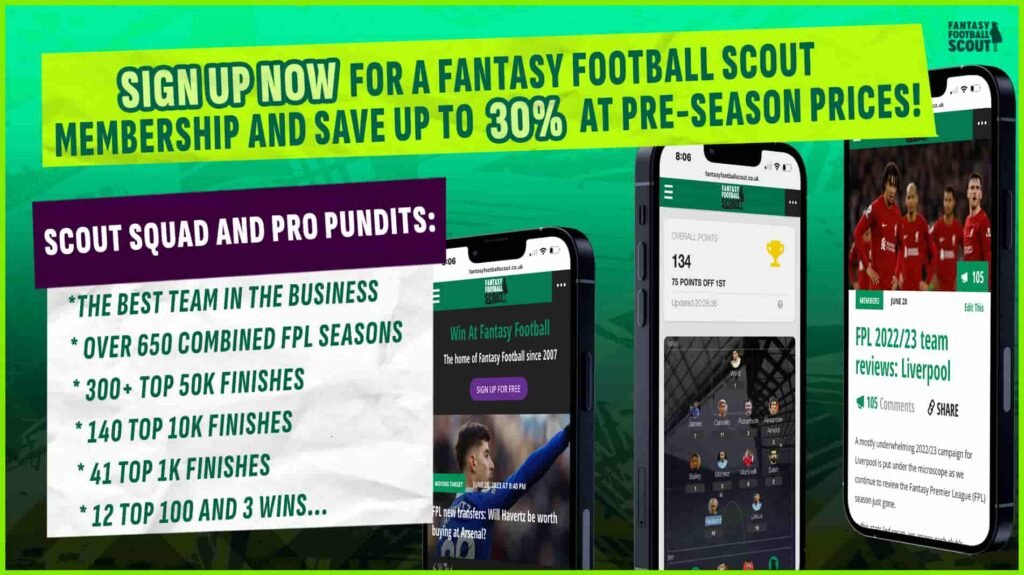From data analysis to personal stories, the Community Articles section of Fantasy Football Scout is home to some thought-provoking, user-penned pieces.
In the article below, Scout user lwluen compares Fantasy Premier League (FPL) to long-distance running.
I guess it’s very common nowadays to hear people using the quote, “FPL is a marathon, not a sprint.” As a marathon runner myself, the old cliche actually rings true.
STAYING WITH THE PACK
If you watch some of the world’s major marathons, you will see that elite runners usually form a pack from the beginning – this is a group of 10-20 runners, sometimes more, that leads the race from the start.
A marathon is a 26.2-mile race. The pack usually stays together for the first three-quarters of the race, and the winner usually is from that pack itself. Of course, there will be some runners who try to distance themselves from the pack from the start, sprinting away at the beginning, but the pack almost always catches up with them, and they eventually get overtaken after they run out of gas.
Also, there will be some runners from the pack who fail to keep pace and eventually fall behind; some even quit the race entirely due to injury, fatigue, or loss of motivation.
A good marathoner, just like a good FPL player, always tries to stay with the pack from the start.
Take the best marathoner of all time, Eliud Kipchoge, as an example. He might have the ability to break away right at the beginning, but he never does so. The strategy for him is to always run with the pack for the first 75% of the race or so, going at a steady but consistent pace, sizing up his opponents and potential threats, staying mentally strong and focused. The final quarter of the race is the time when he decides “how to win.” At this stage, everyone is tired, mentally and physically, but as a champion, he always has that extra push that others don’t. That extra push helps him break away from the pack, extending his lead more and more with each mile, then calmly finishing ahead of other competitors, convincingly winning.
There is so much we can learn from Kipchoge, and from the marathon. The initial lead (ie early overall rank) doesn’t really matter; you can start as strong as you want (with a sprint) but if you fail to sustain it, you will be just like the early leaders who ran out of gas eventually.
“Staying with the pack” is important; start strong and steady, don’t make drastic unreasonable moves, just make sure you are within sight of the leading pack. Plan long-term, not just how to overtake the runner in front of you, but how you are going to outlast your competitors.
HITTING THE WALL
There is a term in the marathon called “hitting the wall.” When you hit the wall, your body runs out of fuel, every step feels heavy, and you feel as though you can no longer move forward. That’s the moment when your mind tells you to quit. Elite marathoners like Kipchoge train themselves to avoid hitting the wall. In FPL, we can do that too, by learning through experience, by doing our homework, by planning long-term, and by learning how to deal with minor setbacks (bad Gameweeks).
BREAKING THROUGH
And, for the final quarter of the race, it’s up to us to find a way to break through from the pack. Through differentials, through the good use of chips, through clever captaining, and of course, with some luck as well, we can find the edge to hopefully outlast our opponents and finish strong.
It’s easier said than done, of course.
ONE STEP AT A TIME
My mantra in running a marathon has always been to take it one mile at a time, one uphill at a time, and if I am exhausted, one step at a time. If you find yourself having a bad Gameweek, stay in the present and try to make the best possible decision one week at a time. Doing badly this Gameweek doesn’t mean you will flop in the next Gameweek as well. The same goes for the marathon; you can have a bad mile, during which you throw up everywhere (again from personal experience), but if you persevere, you might feel fresh again the next mile, and all the pain just magically goes away.
For marathoners, trust that your training will get you through the race. For FPL managers, have faith that your meticulous preparation will bear fruit. If everything fails, at least we learn from our mistakes, and there will always be a next race/season!

